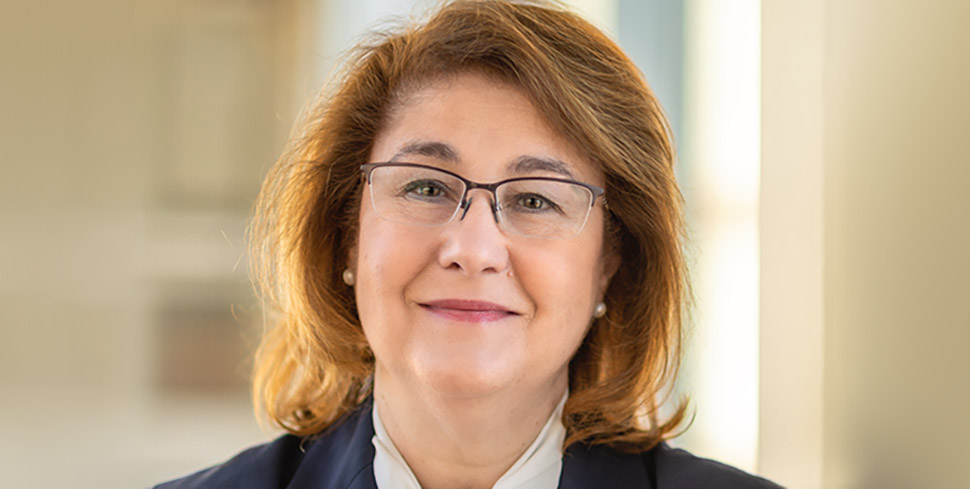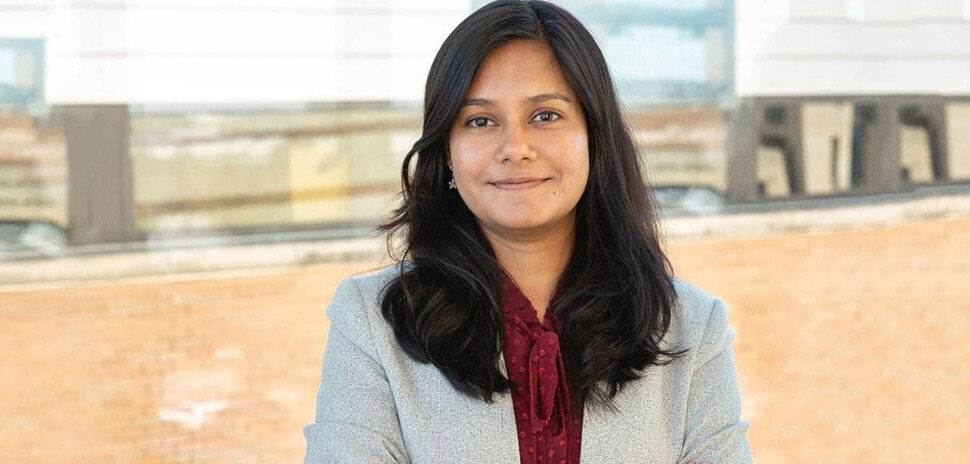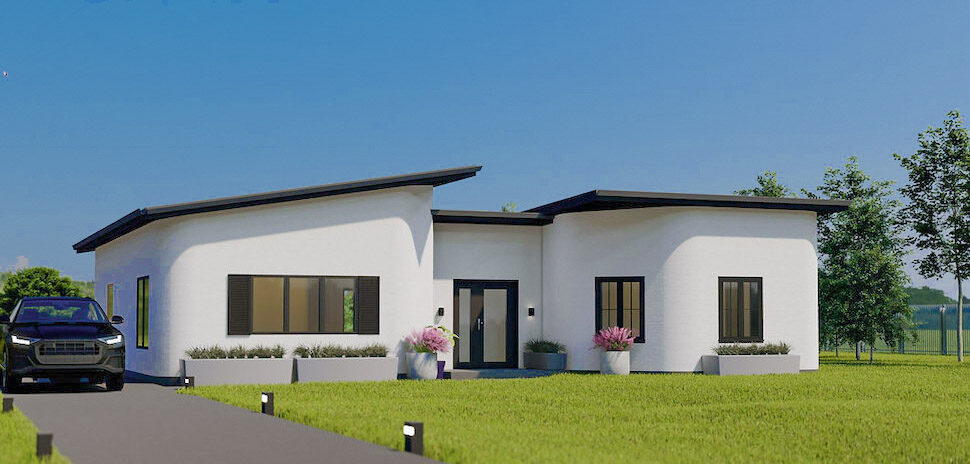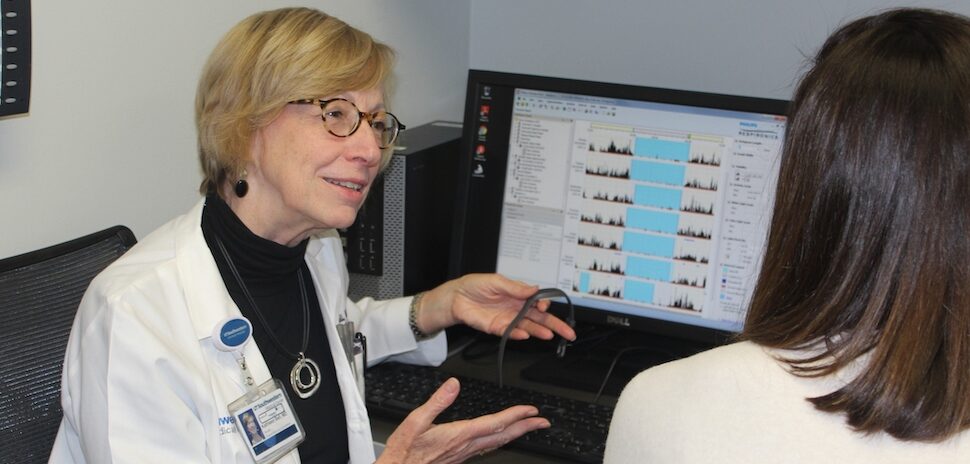“Engineering the nanostructure of concrete…will allow the material to capture thermal energy from the surroundings and convert it into usable electrical energy.”
Maria Konsta-Gdoutos
Associate Director
UT Arlington’s Center for Advanced Construction Materials
.…on getting a $1.5M National Science Foundation grant to explore a carbon-neutral concrete that can be a clean source of energy.
Konsta-Gdoutos is exploring a way to turn one of the world’s biggest polluters—concrete, which accounts for at least 8% of global energy-related CO2 emissions—into a source of clean, renewable energy.
“We will pioneer TE-CO2NCRETE, a thermoelectric carbon-neutral concrete, that will exhibit a high carbon dioxide uptake potential and storage capacity,” Konsta-Gdoutos said in a statement. “Engineering the nanostructure of concrete also will allow the material to capture thermal energy from the surroundings and convert it into usable electrical energy, leading to the development of a novel technology for renewable electricity and higher efficiency power source.”
WIth a $1.5 million grant from the National Science Foundation, her effort is a collaboration with the University of Wisconsin-Milwaukee’s Concrete Sustainability and Resilience Center and four institutions in Europe: the French National Center for Scientific Research; the Technical Universities in Dresden and Berlin, Germany; and the Politecnico di Torino in Torino, Italy.
The Portland Cement Association and the American Concrete Institute are also stakeholders in the research.
The partnership’s goal is to advance technologies “for net zero carbon concrete at a global scale—picking up the pace set by the Paris Agreement to reduce greenhouse gas emissions 52% by 2030.”
To help achieve that, UT Arlington has an ace in the hole: CACM’s labs contain a sub-10-nanometer imaging/mapping NanoIR AFM spectrometer—”the only one at a university in the U.S.” according to UTA.
“The partnership’s readiness to scale up and establish long-lasting bonds of international research are extensive,” Melanie Sattler, professor and interim chair of the UTA Department of Civil Engineering, said in the statement. “I could see industry stakeholders and national and international agencies become meaningful partners of the workforce connection.”
For more of who said what about all things North Texas, check out Every Last Word.
![]()
Get on the list.
Dallas Innovates, every day.
Sign up to keep your eye on what’s new and next in Dallas-Fort Worth, every day.


































































